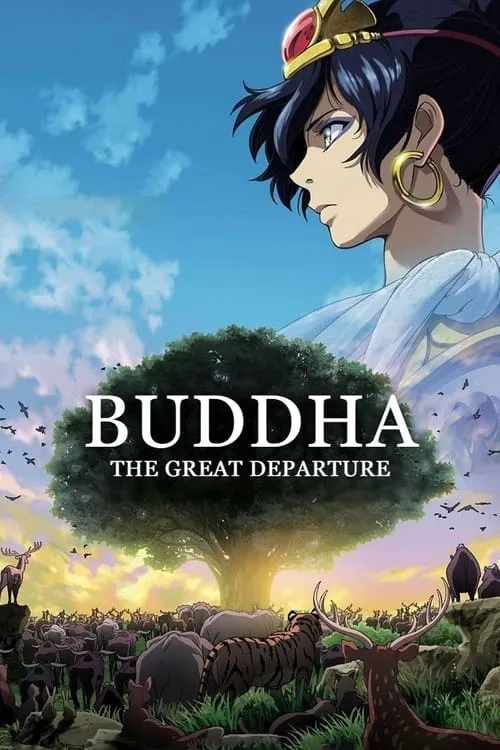Buddha: The Great Departure

Plot
In the lush, serene landscape of ancient India, the Shakya kingdom flourishes as a powerful and prosperous state, ruled by its benevolent King Tissa. However, the tranquility is marred by the ever-present threat of aggression from the neighboring Kosala kingdom, a more imposing and ruthless force that seems determined to bring the Shakya dynasty to its knees. The king's primary concern, therefore, is the security of his kingdom and the preparation of his son, Prince Siddhartha, to assume leadership of the Shakya army and safeguard the future of the kingdom. Under King Tissa's watchful eye, Prince Siddhartha undergoes rigorous training in martial arts and combat tactics, honed by the expertise of the most seasoned warriors in the land. He is a prodigy of unwavering courage and impressive skill, destined to become a mighty warrior king. However, as the prince's tutelage progresses, the king begins to realize that Siddhartha is not merely a skilled warrior; he possesses an innate sense of compassion, a deep-seated desire to alleviate the suffering of all beings and a longing for a more tranquil and peaceful world. In an effort to shield his son from the harsh realities of life, the king instructs his attendants to keep Prince Siddhartha isolated from the troubles of the world. He arranges for his son to spend his leisure time engaged in leisurely pursuits, free from the constant exposure to the pain and hardship faced by the common people. This carefully constructed bubble of isolation, aimed at protecting Siddhartha's sensitivity, inadvertently prevents him from experiencing life's true essence and forces him to dwell in a world of illusions. One fateful morning, an unexpected encounter with a young outcast girl, Migaila, shatters Prince Siddhartha's tranquility and opens his eyes to the vast chasm between the haves and have-nots. As he watches Migaila's unassuming smile and listens to her simple wisdom, the prince is drawn to her unshakeable optimism and unwavering faith in the goodness of the universe. It is during this period of self-discovery that Siddhartha experiences love for the first time, an ephemeral yet profound moment that profoundly awakens his heart and illuminates the dark recesses of his mind. Meanwhile, in the shadow of the Kosala kingdom, a figure rises to prominence. Chapra, a talented warrior of lowly origin, has been honing his martial skills with unwavering dedication. Through sheer tenacity and merit, he manages to distinguish himself as an outstanding officer in the Kosala army. His meteoric rise in rank is marked by a mix of talent, good fortune and an innate capacity to inspire loyalty in his comrades. Chapra soon finds himself in the commanding position of a general, driven by a burning ambition to lead his comrades to unprecedented triumphs. Inevitably, a climactic showdown between the Shakya and Kosala kingdoms looms on the horizon, casting a dark shadow over the peaceful landscape of ancient India. As military forces from both sides face off in preparation for battle, Prince Siddhartha is called upon to fulfill his responsibilities as a future warlord. However, confronted with the imminent threat of bloodshed and the suffering that it entails, the young prince finds himself increasingly disenchanted with the course he is expected to follow. His resolve begins to crumble as he contemplates the devastation that war would bring and the lives that would be lost in its wake. His vision becomes clouded by the prospect of violence and loss, forcing him to question the very purpose for which he was being groomed. Siddhartha starts to sense that there must be an alternative path – a way to transcend the cycle of violence and bloodshed, a path that would grant him the wisdom to bring peace to his troubled kingdom and an understanding of the intricacies of life. The impending battle between the Shakya and Kosala kingdoms serves as the backdrop for Siddhartha's profound introspection. It is during this pivotal juncture in his life that the seeds of his transformation are sown, marking the threshold to a new era, and a departure from a life of violence and bloodshed, in favor of one centered on compassion, wisdom, and enlightenment.
Reviews
Recommendations




